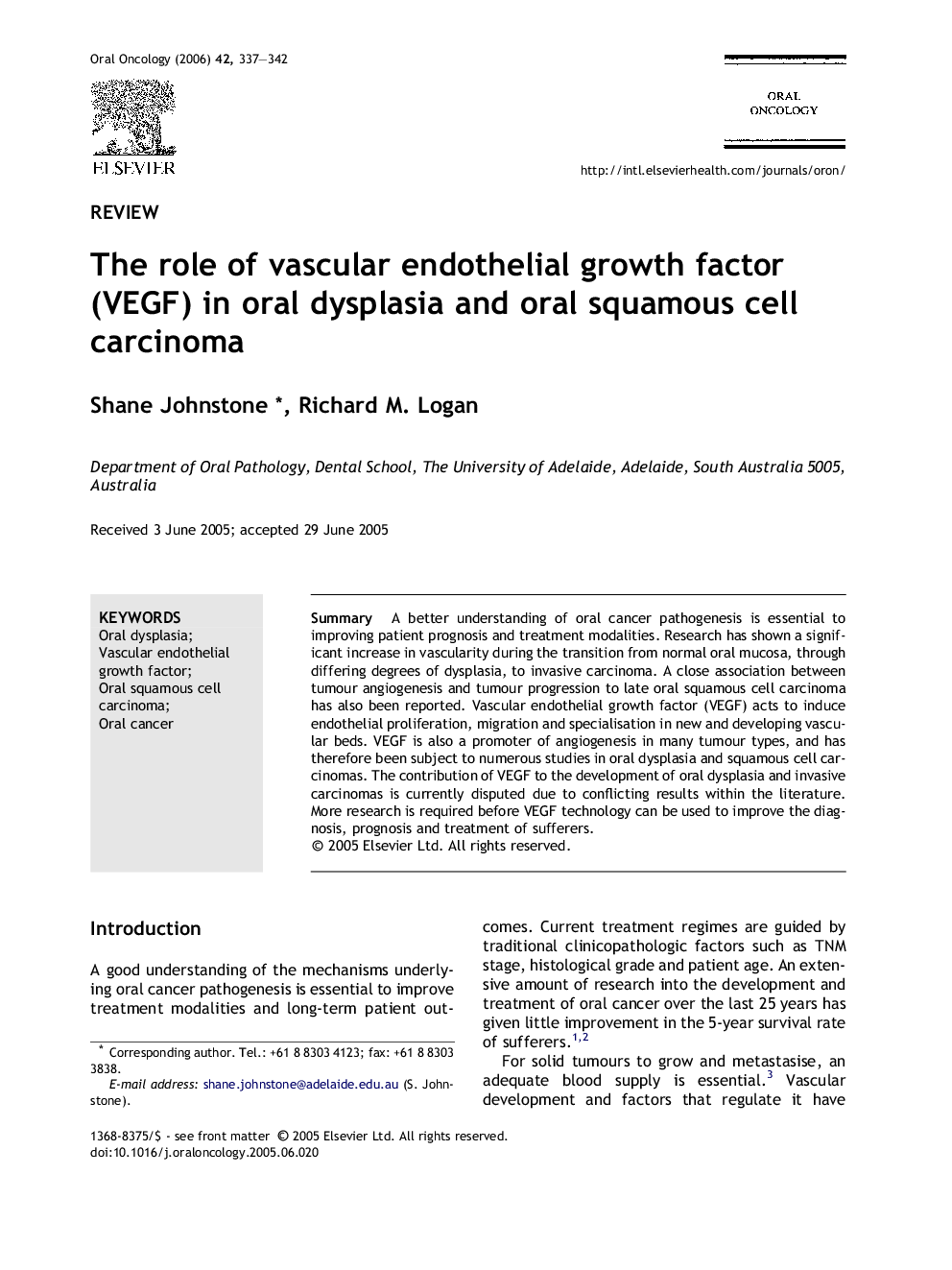| کد مقاله | کد نشریه | سال انتشار | مقاله انگلیسی | نسخه تمام متن |
|---|---|---|---|---|
| 3166017 | 1198881 | 2006 | 6 صفحه PDF | دانلود رایگان |

SummaryA better understanding of oral cancer pathogenesis is essential to improving patient prognosis and treatment modalities. Research has shown a significant increase in vascularity during the transition from normal oral mucosa, through differing degrees of dysplasia, to invasive carcinoma. A close association between tumour angiogenesis and tumour progression to late oral squamous cell carcinoma has also been reported. Vascular endothelial growth factor (VEGF) acts to induce endothelial proliferation, migration and specialisation in new and developing vascular beds. VEGF is also a promoter of angiogenesis in many tumour types, and has therefore been subject to numerous studies in oral dysplasia and squamous cell carcinomas. The contribution of VEGF to the development of oral dysplasia and invasive carcinomas is currently disputed due to conflicting results within the literature. More research is required before VEGF technology can be used to improve the diagnosis, prognosis and treatment of sufferers.
Journal: Oral Oncology - Volume 42, Issue 4, April 2006, Pages 337–342